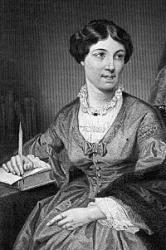1798 - 1838 Person Name: J. D. Knowles Hymnal Number: d321 Author of "O God, though countless worlds of light" in The Methodist Protestant Church Hymnal Knowles, James Davis, an American Baptist Minister, was born at Providence, Rhode Island, 1798; educated at Columbian College; became pastor of the 2nd Baptist Church, Boston, 1825, and Professor at Newton Theological Institute, 1832. He died in 1838. His hymn, "O God, through countless worlds of light" (Dedication of a Place of Worship), appeared in the Baptist Psalmist, 1843; the Methodist Episcopal Hymns, 1849, &c. [Rev. F. M. Bird, M.A.]
--John Julian, Dictionary of Hymnology (1907)
================
Born: July 6, 1798, Providence, Rhode Island.
Died: May 9, 1838, Newton, Massachusetts, of smallpox.
Buried: Newton Theological Institute, Newton, Massachusetts. His grave was in the rear of Sturtevant Hall.
His father having died when he was 12 years old, Knowles was apprenticed to a printer, where he became thoroughly acquainted with printing, as well as writing for the press. At age 21, he became co-editor of The Rhode Island American.
In March 1820, Knowles was baptized by Dr. Gano, pastor of the First Baptist Church in Providence. The following autumn, he was licensed by the church and entered the Theological Seminary in Philadelphia, Pennsylvania, where Dr. William Staughton and Irah Chase were the professors. In 1822, the college merged with Columbian College in Washington, DC, and Knowles followed his instructors there. While there, he edited a weekly, The Columbian Star. After graduating in 1824, Knowles tutored at the college, but the next autumn, he received a call to the Second Baptist Church in Boston, Massachusetts, where he became its second pastor; he was ordained December 8, 1825.
He remained in Boston seven years, then had to resign to ill health. He became a Professor of Pastoral Duties and Sacred Rhetoric at the Newton Theological Institute in 1832. After his health improved, he took over editorship of The Christian Review. Upon returning from a visit to New York, he was stricken with smallpox, which led to his death.
Knowles’ works include:
Perils and Safeguards of American Liberty, an address presented July 4, 1828, in Boston, Massachusetts
Memoirs of Mrs. Ann H. Judson, Late Missionary to Burmah, 1829
Spirituous Liquors Pernicious and Useless. A Fast Day Sermon Delivered at Boston, 1829
Importance of Theological Institutions. Address Before Newton Theological Institution, 1832
Memoir of Roger Williams, the Founder of the State of Rhode Island, 1834
--www.hymntime.com/tch
James Davis Knowles


 My Starred Hymns
My Starred Hymns



